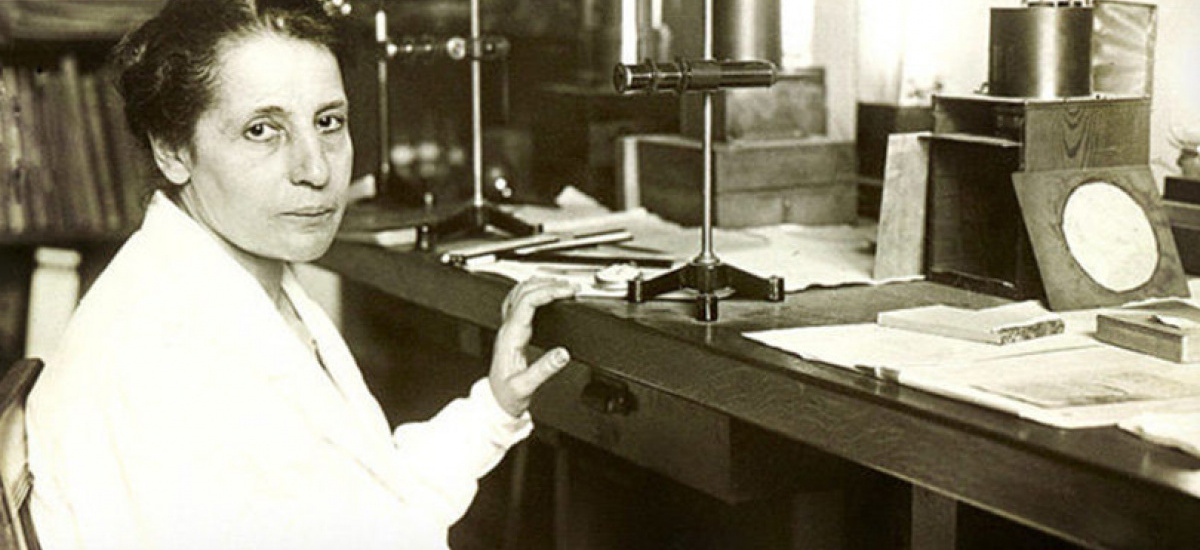Image: Polytechnic University of Cartagena
In the firmament of science, there are names that shine with their own light, although they often remain in the shadows of history. Lise Meitner, a seminal figure in 20th century physics, is one of those brilliant minds that has left an indelible mark on the scientific world. Born on November 7, 1878 in Vienna, Meitner became a mainstay of nuclear research and a pioneer in the understanding of nuclear fission, despite facing numerous obstacles due to her gender.
Meitner demonstrated her passion for the sciences from an early age, defying the expectations of an era when women faced significant challenges in accessing higher education. Despite these obstacles, she became one of the first women to earn a doctorate in physics at the University of Vienna in 1906.
Meitner’s real rise in the scientific world began when he joined Max Planck in Berlin in 1907. There, he worked tirelessly and became associated with
Otto Hahn
establishing a collaboration that would change the course of the history of physics. For decades, Meitner and Hahn worked side by side on research in radioactivity and nuclear physics, cementing one of the most fruitful and remarkable scientific partnerships.
The price of being a woman
Despite her deep knowledge and significant contributions, Meitner’s career was marked by challenges and discrimination due to her gender. Despite this, her tireless dedication to science and her undisputed genius led her to become the first woman professor of physics in Germany, at the University of Berlin, albeit only as an “associate professor”.
The most outstanding milestone in Meitner’s career occurred during his collaboration with Hahn, when they unraveled one of the most momentous discoveries of the 20th century: nuclear fission. In 1938, while Meitner had been forced to leave Germany because of anti-Semitic politics, she and her nephew Otto Frisch, who was also a physicist, interpreted the experimental results of Hahn and Fritz Strassmann on uranium fission. This discovery laid the foundation for the development of nuclear energy and, tragically, the subsequent creation of the atomic bomb.
creation of the atomic bomb
.
Despite the importance of his contribution to the discovery of nuclear fission, Meitner never received the Nobel Prize in Chemistry, which was awarded to Otto Hahn in 1944 for this work. His omission in this recognition was widely criticized and is considered one of the most notable errors in the history of the Nobel Prizes.
After World War II, Meitner remained active in research and continued to advocate the peaceful use of nuclear energy. He became an influential voice in the debate about the risks and benefits of this new form of energy, showing his concern about the ethical and humanitarian implications of the science.
Posthumous recognitions
Lise Meitner’s legacy goes beyond her scientific discoveries; her life is a testament to courage, determination and genius. Despite the challenges he faced, his passion for science never waned. To compensate for the lack of recognition throughout her career, Meitner has been honored on numerous occasions posthumously with numerous awards. Also
a chemical element of the periodic table was also dedicated to her: Meitnerium, which was synthesized by German researchers Peter Armbruster and
of the periodic table: Meitnerium, which was synthesized by German researchers Peter Armbruster and Gottfried Münzenberg in 1982, almost 15 years after the scientist’s death.
His influence lives on in the minds of future generations of scientists, especially women, inspiring them to pursue their dreams and challenge the limits set by society. Meitner’s impact on science and her fight for gender equality continue to be a beacon of inspiration in the pursuit of knowledge and equity in the scientific field.
Therefore, we can say that Lise Meitner was much more than a brilliant scientist; she was a bold pioneer, a visionary mind and a symbol of tenacity in a world dominated by prejudice. His legacy is manifested not only in his scientific achievements, but also in his courageous struggle against adversity. His life and work remain a reminder that talent knows no gender and that the human spirit can transcend any barrier imposed by society.



